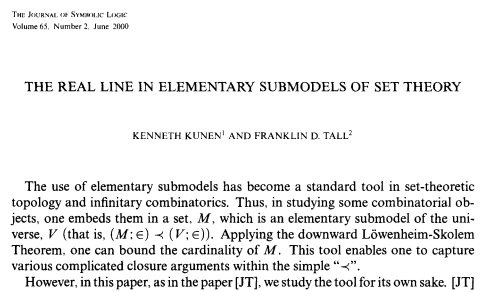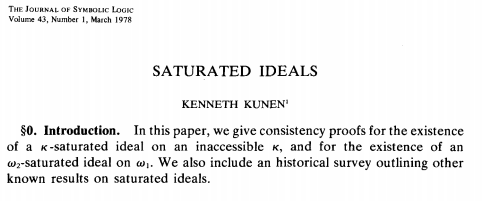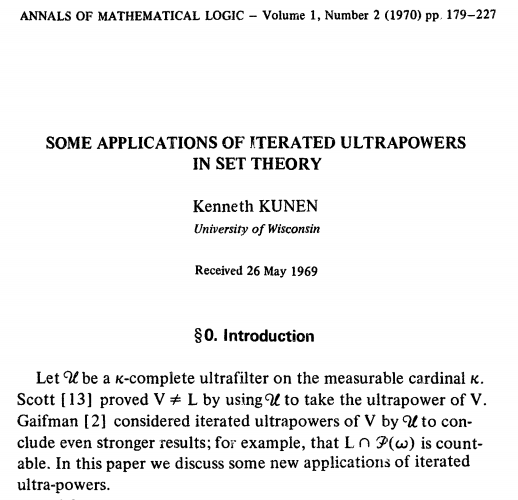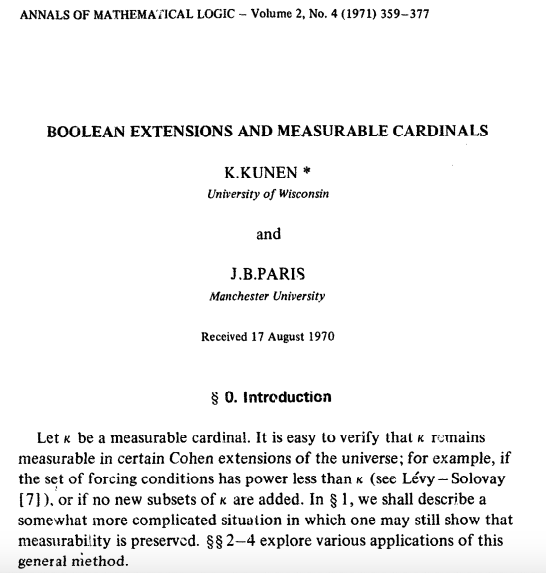"The real line in elementary submodels of set theory" appeared in The Journal of Symbolic Logic 65 (2000), no. 2, 683–691. doi.org/10.2307/2586561
This fun paper was written by Ken and Frank Tall. It appeared while I was in grad school.
1/

I only interacted with him very briefly, but his good humor was always apparent.
2/
3/
4/
Kunen was the first to prove this.
5/
"Saturated ideals", J. Symbolic Logic 43 (1978), no. 1, 65–76. doi.org/10.2307/2271949
6/

7/
Oh, well. 🙂
8/
9/
10/

11/
12/
13/
14/
mathoverflow.net/q/40507/6085
15/
elsevier.com/books/set-theo…
16/
17/
18/
Kunen, K.; Paris, J. B. "Boolean extensions and measurable cardinals". Ann. Math. Logic 2 (1970/71), no. 4, 359–377.
doi.org/10.1016/0003-4…
19/

20/
21/
22/

23/
24/
25/
The combinatorics of Reinhardt cardinals (the critical points of embeddings j:V→V in the absence of choice) are really interesting.
26/
29/
I've also looked at extensions of the inconsistency result in my own work. I became interested in this after obtaining some results relating the structure of V and an inner model W, from the assumption that V and W agree on some cardinals.
28/
29/
andrescaicedo.files.wordpress.com/2010/04/cardin…
30/
Any embedding j:V→M with M and V having the same cardinals must be highly discontinuous, that is,
31/
Very recently, Gabe Goldberg extended this idea, by showing that,
32/
33/
34/34


